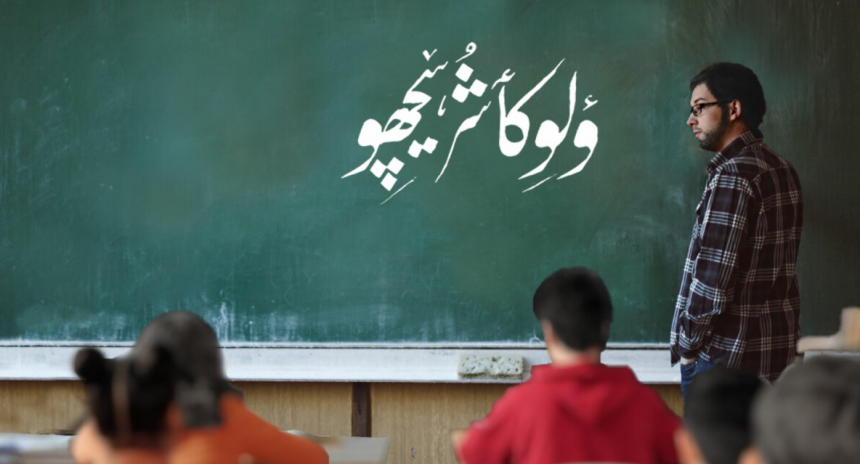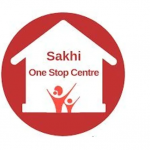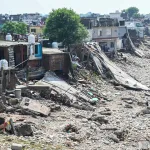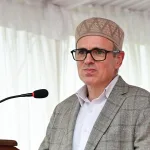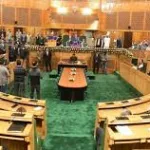LANGUAGE ON THE BRINK
The Kashmiri language, a rich & vibrant part of the region’s cultural heritage, is facing a significant threat. The increasing influence of English & other languages is leading to a decline in the use & proficiency of Kashmiri, especially among the younger generation. Let’s explore the impact of this linguistic shift on the Kashmiri language & culture, and why it’s essential to preserve our mother tongue.
The History and Significance of Kashmiri
Kashmiri, also known as Koshur, is a language spoken by the people of the Kashmir Valley. With a rich literary & cultural heritage, Kashmiri has been an integral part of the region’s identity for centuries. The language has a unique grammar, vocabulary & syntax, shaped by the region’s history, geography & cultural influences.
The Influence of English
English, as a global language, has become an essential tool for communication in education, business & international relations. In Kashmir, English is widely used in schools, colleges & universities & is often considered a key to success in the modern world. Many parents & educators believe that proficiency in English is crucial for securing better job opportunities & accessing higher education. As a result, English has become the preferred language of instruction & Kashmiri has taken a backseat.
The Impact on Kashmiri
The influence of English on Kashmiri is multifaceted. One of the most significant impacts is the loss of vocabulary. Many Kashmiri words & phrases are being replaced by English words, leading to a decline in the use of native vocabulary. This is particularly evident among the younger generation, who are more exposed to English in schools & media. The use of English words & phrases in everyday conversation is becoming increasingly common, leading to a dilution of the Kashmiri language.
Another impact of English on Kashmiri is code-switching. Code-switching refers to the practice of switching between two or more languages in a single conversation. While code-switching can be a useful tool for communication, it can also lead to a decline in proficiency in one or both languages. In the case of Kashmiri, code-switching with English is becoming increasingly common, especially among young people. This can lead to a lack of fluency in Kashmiri & a decline in the use of native vocabulary.
The Influence of Other Languages
In addition to English, other languages such as Urdu & Hindi are also influencing Kashmiri. Urdu, in particular, has had a significant impact on Kashmiri, as it is widely used in official communication & education. Many Kashmiri words & phrases are being replaced by Urdu words, leading to a decline in the use of native vocabulary. This is particularly evident in formal settings, such as government offices & educational institutions.
Some key statistics & facts about the Kashmiri language
- Number of Speakers: Approximately 7.1 million people speak Kashmiri, primarily in the Kashmir Valley & surrounding areas of Jammu and Kashmir.
- Geographic Distribution: Kashmiri speakers form the majority in the Kashmir Valley, while around 5% of POJK speaks Kashmiri, particularly in districts like Muzaffarabad, Neelam & Hattian.
- Official Status: Kashmiri is an official language in Jammu and Kashmir, alongside Dogri, Hindi, Urdu & English. It’s also one of the 22 scheduled languages of India.
- Language Family: Kashmiri belongs to the Indo-Aryan language family, specifically the Dardic branch.
Scripts: Kashmiri uses multiple scripts, including
- Perso-Arabic Script: The official script used for Kashmiri, recognized by the Jammu and Kashmir government.
- Devanagari Script: Informally used by some sections of the Kashmiri Pandit community.
- Sharada Script: An ancient script used for liturgical purposes.
The Decline of Kashmiri
The decline of Kashmiri is a complex issue, influenced by a range of factors. One of the most significant factors is the lack of opportunities to use Kashmiri in formal settings. In schools & colleges, Kashmiri is often not taught as a subject, and students are not encouraged to use the language in formal communication. This can lead to a lack of proficiency in Kashmiri & a decline in the use of the language. Another factor contributing to the decline of Kashmiri is the increasing urbanization & migration of people from the Kashmir Valley.
As people move to urban areas, they are exposed to other languages & cultures, which can lead to a decline in the use of Kashmiri. This is particularly evident among young people, who are more likely to adopt the dominant language and culture of their new environment. Preserving Kashmiri is crucial for several reasons. Firstly, Kashmiri is an integral part of Kashmir’s cultural identity & heritage. The language is a reflection of the region’s history, geography & cultural influences, and is an essential part of the region’s unique identity.
By preserving Kashmiri, we can ensure the survival of the region’s cultural heritage and pass it on to future generations. Secondly, Kashmiri is a valuable part of the region’s linguistic diversity. The language has a unique grammar, vocabulary & syntax, which contribute to the rich linguistic diversity of the region. By preserving Kashmiri, we can ensure the survival of this linguistic diversity & promote a greater understanding & appreciation of the region’s cultural heritage.
Conclusion
Preserving Kashmiri is essential for community bonding & social cohesion. The language serves as a vital link between generations & communities, fostering a sense of belonging and identity. By preserving Kashmiri, we can promote greater social cohesion & community bonding & ensure the survival of the region’s unique cultural identity. Additionally, documenting Kashmiri language, literature & folklore can preserve its history & cultural significance.
Organizing cultural events, festivals & workshops can also promote the language & encourage its use in daily conversations. Furthermore, preserving Kashmiri language through digital means, such as language learning apps & online dictionaries, can make it more accessible to a wider audience. By working together & taking these steps, we can help ensure the survival & thriving of the Kashmiri language for future generations.
(Author is studying at Aligarh Muslim University & can be reached at: [email protected])


